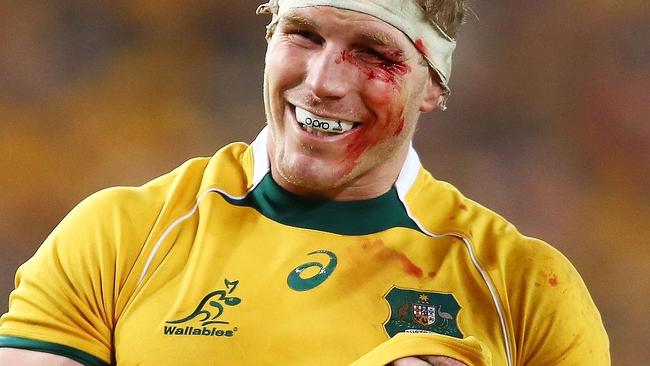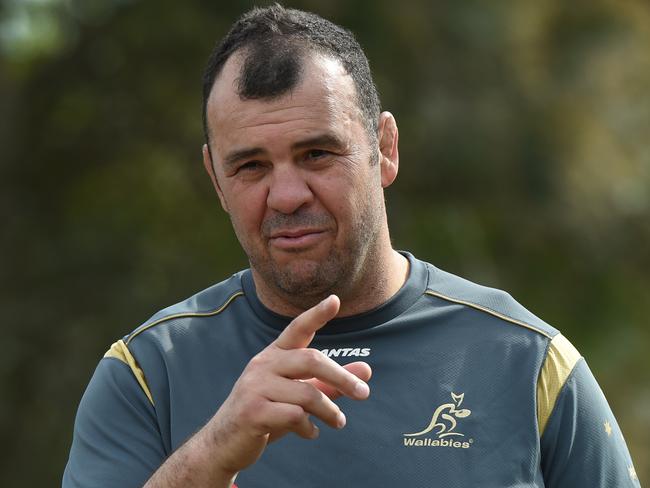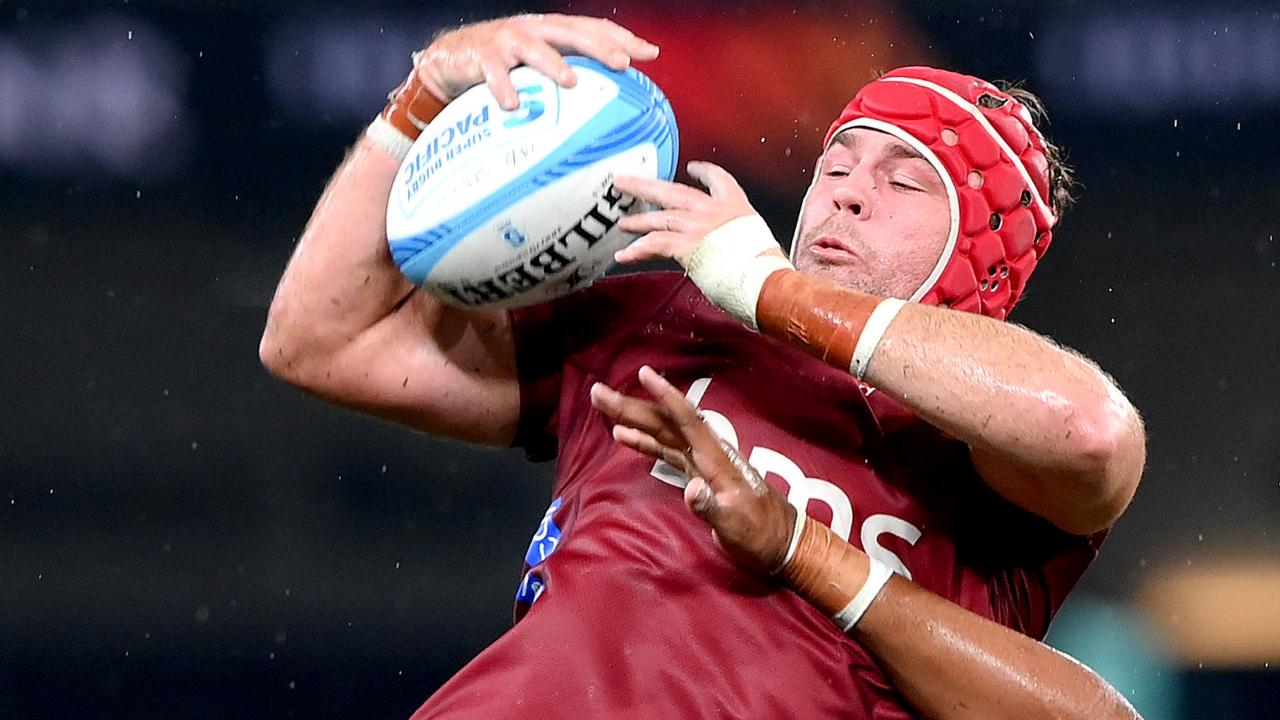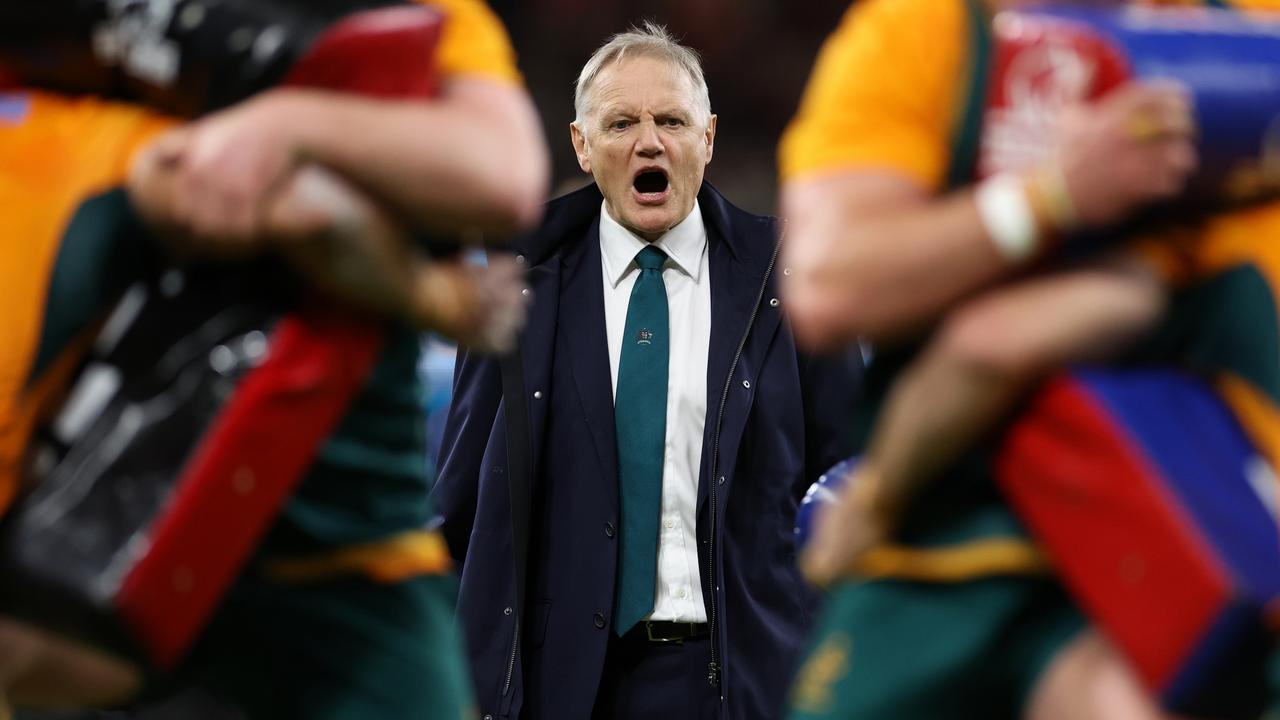Five burning questions for Wallabies World Cup campaign
AS THE countdown to the Wallabies’ World Cup opener against Fiji draws shorter, these are the most important questions facing the Aussies.

Rugby
Don't miss out on the headlines from Rugby. Followed categories will be added to My News.
AS the Rugby World Cup fast approaches, the Wallabies face a number of contentious issues on their path to success on the game’s biggest stage.
From the danger of the All Blacks to key positional battles, Australia have just a few weeks to iron out some key teething issues if they are to become the first nation to hold the Web Ellis Cup three times.
CAN AUSTRALIA EDGE OUT THE ALL BLACKS?
IT is the question all Wallabies fans will be asking. In fact it is the question all rugby fans are asking: can the All Blacks be beaten at the World Cup?
They have held the world No. 1 ranking for 10 years straight, and right now, they seem unbeatable.
But regardless of New Zealand’s status as the reigning world champion, history shows they are statistically no better at World Cup time than Australia. In fact, the records of the two nations read almost identically.
Both have won two titles — Australia in 1991 and 1999, New Zealand in 1987 and 2011.
Both have placed runners up once each, and both have failed to make the final on four occasions.
Yes, the All Blacks currently have an unbelievable win record, and yes, they are a dominant force in the world of rugby. But the World Cup is a different beast. Anything can happen.
WHO WILL FORM THE BEST HALVES PAIRING?
ONE of the biggest issues plaguing the Wallabies throughout the Rugby Championship and ensuing games has been their lack of cohesion with their halves pairings.
The unfortunate reality for the Wallabies is they have two excellent flyhalves, two excellent halfbacks and only two possible combinations. The Waratahs pairing of Nick Phipps and Bernard Foley has been coach Michael Cheika’s go-to and it has paid dividends for the most part.
Even in the instances where Phipps hasn’t been firing, as was the case for his dismal performance against the All Blacks in Sydney, Foley has proven capable of providing enough direction to steer Australia to a win even against the reigning world champions.
The same can be said for the Will Genia-Quade Cooper combination. Even if one is slightly off, the two have such an intuition built over years of playing together at the Reds that they are able to carry each other.
However, in the instance of a mix up of either pairing, which is likely to come about either through injury or the continuation of Phipps’ sub-par form, Cheika runs the risk of losing an element of cohesion and familiarity among his playmakers.
For Genia and Cooper, the two complement each other in their loose play and ability to create something out of nothing.
But for Phipps and Foley, they play a much more structured pattern. Despite the fact that they play the structure together very well, in the case of a split, both need to be prepared to play a more unpredictable style of rugby.
Unless the four men in question form a stronger bond and develop that intuition fast, the Wallabies are just one injury away from unstructured, scrambling footy.
WHERE WILL POCOCK PLAY?
AT the start of the international season, the question was raised as to who would hold the number seven jersey for the Wallabies, as Michael Hooper and David Pocock reunited in the national side for the first time in two years.
Before Pocock had made his long awaited return to Test football, even his biggest fans were questioning whether he would still be good enough to edge out the “Energizer Bunny” Hooper.
However, if his performances in the Rugby Championship weren’t enough, Pocock was recently named the Super Rugby Player of the Year for 2015. If there was ever any doubt whether he would be in the starting side at the World Cup, it now stands a distant memory.
This then raises the question as to what position Pocock will play.
To push Hooper to the bench would be a massive call, considering he has been alongside the Brumbies’ flanker as one of Australia’s top performing forwards all year.
However if Pocock plays at the back of the scrum, the Wallabies lose the physical dominance of veteran No. 8 Wycliff Palu.
In the same vein, Pocock at blindside flanker limits Australia’s jumping options in the line-out.
The Wallabies therefore must select two line-out specialists in the second row and force Palu to jump, or sacrifice a hint of size and lock Pocock at the back of the scrum.
Either way, he has to be in the starting 15.
WILL THE SCRUM HOLD UP?
AUSTRALIA’S scrum has notoriously been a weak point in recent years. Up against the front-row specialists of the Northern Hemisphere, the Wallabies could struggle to gain the upper hand at the set-piece.
However, with Stephen Moore and Sekope Kepu all but cementing their positions, Australia just need to find a compatible loosehead prop and stick with them.
Be it Scott Sio, James Slipper or Toby Smith, the Wallabies have the advantage of depth in their World Cup front-row stocks.
If Moore and Kepu stay fit, Australia’s scrum should survive.
HAS CHEIKA SUFFICIENTLY BOLSTERED HIS SPECIALISTS?

WHEN Michael Cheika announced his 31-man squad to head to the UK, critics immediately slammed him for only choosing two specialist halfbacks and two specialist hookers — and with good reason.
Take the halfback situation. With only Will Genia and Nick Phipps in the squad, Cheika has no choice but to take both in the matchday 23 for every game, regardless of form.
In addition, if either Phipps or Genia are struck down by injury at any point in the tournament, Cheika will be forced to pull veteran centre Matt Giteau from the starting side and place him on the bench as a halfback reserve. And considering Giteau’s current form, and his wealth of experience playing in the UK as well as two World Cups, the Wallabies can’t afford to have him on the sidelines.
The Wallaby coach has also put himself in danger of running out of specialist line-out throwers, with skipper Stephen Moore and Waratah Tatafu Polota-Nau the only hookers in the squad.
Considering Polota-Nau’s history of concussion, in the case of injury, Australia may well find themselves bringing a third-choice hooker into the middle of a World Cup campaign with minimal preparation.
Had Cheika brought a third hooker, and to the same degree a third halfback, he would have afforded himself the luxury of selection in the knowledge that his specialists were all equally prepared, and would have covered all bases in the case of injury.
Originally published as Five burning questions for Wallabies World Cup campaign



